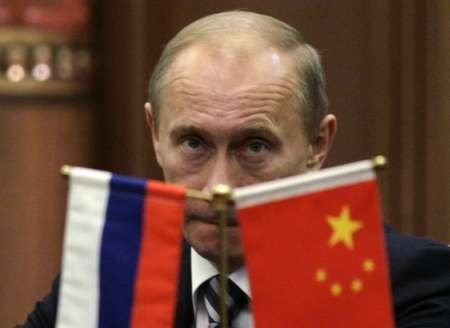Russia's Putin Said to Be Close to Decision on Presidential Run: Sources

Russian Prime Minister Vladimir Putin is close to a decision to bid for the presidency in an election next year because he has doubts about his protege, President Dmitry Medvedev, senior political sources say.
Putin ruled as president from 2000 to 2008 before handing over to Medvedev to comply with a constitutional ban on a third consecutive term. He will be free to run in the March presidential election.
Putin, 58, and Medvedev, 45, have repeatedly refused to say which of them will run but as Russia's paramount leader, officials and diplomats say the decision is Putin's.
"I think Putin is going to run, that he has already decided to," said a highly placed source who spoke on condition of anonymity because of the delicacy of the political situation.
The source said Putin had been troubled by the perception that his protege, whom he has known for more than two decades, did not have sufficient support among the political and business elite or the electorate to ensure stability if he pushed ahead with plans for political reform.
"Putin has much more support from the people than Medvedev. Medvedev has overestimated his weight inside the system," he said.
Another highly placed source who declined to be identified said: "Putin wants to return, really wants to return."
The source said an attempt by Medvedev to assert his authority in recent months had unsettled Putin, but the two leaders communicated well on a regular basis.
A third source also said Putin was thinking of running and that if he became president he could appoint a reformist prime minister, an apparent attempt to dispel fears that his return would usher in a period of stagnation two decades after the fall of the Soviet Union in 1991.
Investors see few differences between the two leaders' policies but many say privately that Medvedev would be more likely to carry out reforms than Putin.
Medvedev's spokeswoman, Natalya Timakova, dismissed talk of any discord between them.
"I do not quite understand where these rumours come from because the president and the prime minister communicate not only on formal issues, but informally too," Timakova said.
A senior Kremlin source said it was up to the people, not the elite, who ruled Russia.
"The discussion should be not about support within the elite but about who has more support from the people," the Kremlin source said. "Support from the elite is not always decisive for the country to move forward."
Asked whether Putin was considering a return to the Kremlin, the prime minister's spokesman, Dmitry Peskov, said: "Vladimir Vladimirovich is working, working hard, rather than thinking about whether to run in the election."
BATMAN AND ROBIN?
Most officials and foreign diplomats believe that, as the ultimate arbiter between the powerful clans that make up the Russian elite, Putin will have the final say on who will run in 2012.
As Russia's most popular politician and leader of the ruling party, Putin would be almost certain to win a newly extended six-year term if he decided to return to the presidency.
He could also then run again for another term from 2018 to 2024, a quarter of a century since he rose to power in late 1999. He would turn 72 on October 7, 2024.
The picture of Russia's "alpha-dog" ruler eying another Kremlin term corresponds to the assessment of U.S. Ambassador to Russia John Beyrle who cast Medvedev as playing "Robin to Putin's Batman," according to leaked U.S. diplomatic cables.
"Russia's bicephalous ruling format is not likely to be permanent based on Russian history and current tandem dynamics," Beyrle wrote in February 2010 according to a copy of the cable here
Because of Medvedev's weakness in relation to Putin, the Kremlin chief's attempt to present himself as anything other than Putin's loyal protege has puzzled investors and irked some of the officials who make up part of Putin's court.
In a host of choreographed public events, Medvedev has pitched himself as the right man for Russia, calling for opening up the tightly controlled political system crafted by Putin and even reportedly lobbying Russia's powerful tycoons for support.
A Kremlin insider said it appeared that both Medvedev and Putin wanted to be president, but that the tandem had not shown itself to be an effective way to rule Russia.
"Neither Medvedev nor Putin have shown that this construction is stable," said the source, who added that talk of any discord was overblown and that Putin had shown his confidence in Medvedev by steering him into the Kremlin in 2008.
Asked about Medvedev, the source said: "He is not stupid but he is not a brilliant manager and I am not completely convinced he has enough steel... Putin does not plan to leave power anytime soon."
© Copyright Thomson Reuters 2024. All rights reserved.





















